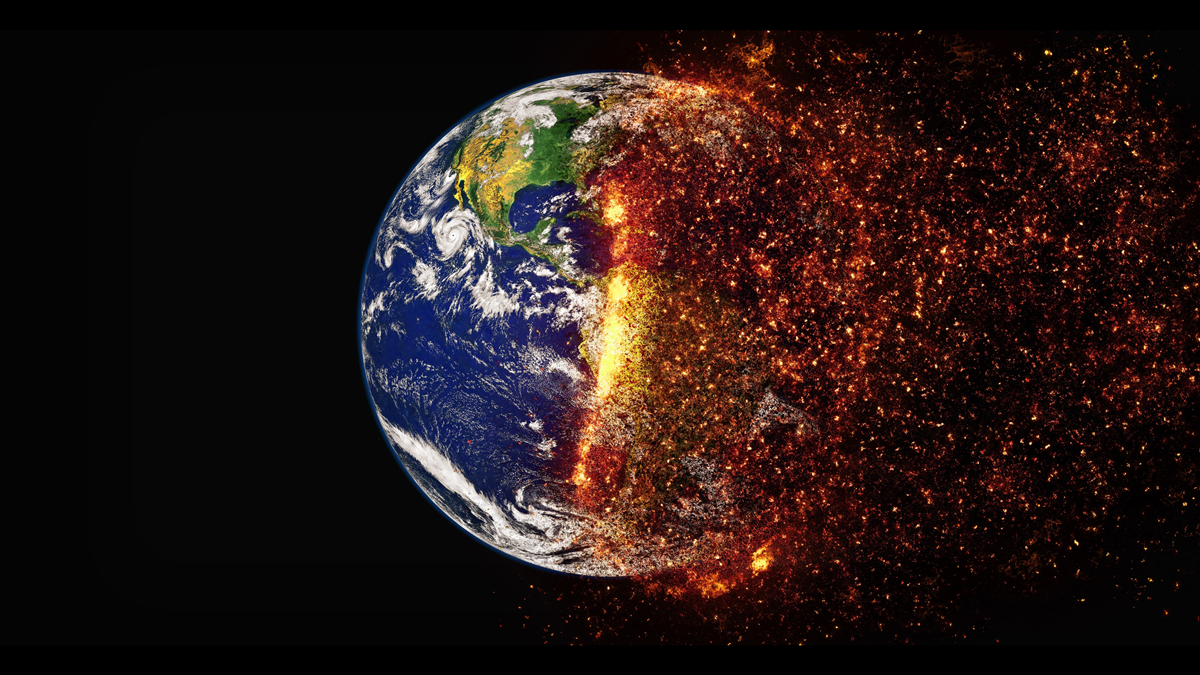
Image / Pixabay
International survey reveals ‘shocking’ rise of eco-anxiety and hopelessness. “If this isn’t a wake up call for world leaders, what is?”
Amidst a sharp increase in deadly wildfires and flooding, increasingly violent storms, and extreme heat, new research published Tuesday found that refusal by governments to act on the climate emergency is causing a widespread sense of hopelessness and eco-anxiety in teenagers and young adults worldwide.
The global advocacy group Avaaz joined researchers at the University of Bath in the United Kingdom and five other universities to survey 10,000 young people between the ages of 16 and 25—the first large-scale eco-anxiety survey of its kind—and discovered that majorities of the respondents were fearful for the lives and livelihoods of their families and the future of the planet.
“If this isn’t a wake up call for world leaders, what is?” —AvaazAs Luisa Neubauer, a 25-year-old leader of the global Fridays for Future movement in Germany, told the Thomson Reuters Foundation, while the climate extremes caused by the planetary emergency are frightening, inaction by world leaders “is too much to handle, too much to accept.””Government is pushing us in front of a bus,” Neubauer told the outlet.
The mental health professionals who conducted the study spoke with young people in 10 countries including Nigeria, the Philippines, India, the U.K., and the U.S., finding that respondents in both wealthy countries and the Global South are facing “feelings of anger, fear, and powerlessness” as the climate crisis directly causes at least one famine, deadly flash flooding, and wildfires in multiple regions.
Nearly half of respondents said their worries about the climate crisis negatively affect their daily life and their ability to function, and more than half told the experts they feel humanity is “doomed.”
Four in 10 said they would hesitate to have children in the future due to the state of the planet, while three-quarters of respondents described their futures as “frightening.”
Avaaz reported that one of the most “shocking” findings was how respondents described their feelings about government inaction, including more than half who said they feel policymakers “are betraying them.”
“If this isn’t a wake up call for world leaders, what is?” asked Avaaz.
Young people in the cyclone-ravages Philippines and Brazil, where deforestation—driven by President Jair Bolsonaro’s government—has become increasingly destructive in recent years, showed the most anxiety of the countries surveyed. More than nine in 10 respondents said they were frightened about the future.
Caroline Hickman, lead author of the study, which was published in The Lanceton Tuesday, cautioned adults against telling young people it is up to them to save the future of the planet.”Thinking the way to cure eco-anxiety is eco-action isn’t right,” Hickman told Thomson Reuters, adding that what will solve the climate crisis is decisive action by world governments.
The survey “shows eco-anxiety is not just for environmental destruction alone, but inextricably linked to government inaction on climate change. The young feel abandoned and betrayed by governments,” Hickman told the BBC. “Governments need to listen to the science and not pathologize young people who feel anxious.”
The survey results were released less than two months ahead of the 2021 United Nations Climate Change Conference (COP 26), where policymakers will meet in Glasgow to discuss commitments to phase out fossil fuel subsidies, provide climate mitigation support for frontline communities across the globe, and rapidly transition to an emissions-free energy system.
Young people are “doing everything we can” to push for climate action, Neubauer told Thomson Reuters, “but that won’t be enough.”
“We won’t fix it” through the Fridays for Future movement, she added. “We need everyone there.”
Originally published on Common Dreams by JULIA CONLEY and republished under Creative Commons.
Related Articles:
- The Earthly Frontier: Building a Sustainable Future at Home
- Beating the Heatwaves: a Sensual Solution to Satisfy your Limbic System
- For 150 Years Oil was Everything – Our Life, Our Economy: Now It’s Time to Imagine a New Way
- This Climate Solution is a Sleeping Giant
- Microgrids and Distributed Solar Energy can Change our Future
Find books on Sustainable Energy Solutions and Climate Science and many other topics at our sister site: Cherrybooks on Bookshop.org
Enjoy Lynxotic at Apple News on your iPhone, iPad or Mac.
Lynxotic may receive a small commission based on any purchases made by following links from this page